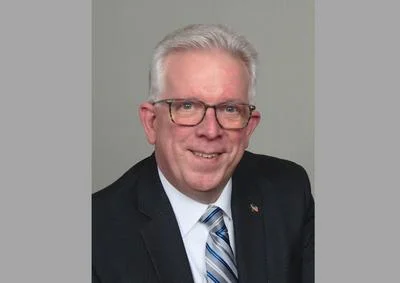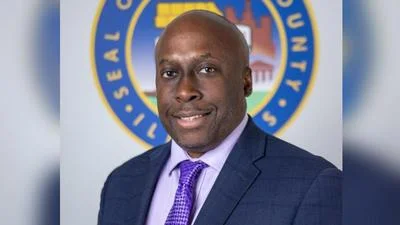Skokie, Ill., Village Hall | skokie.org
Skokie, Ill., Village Hall | skokie.org
At their April 17 meeting, the Village of Skokie Board of Trustees were presented a new initiative to address hate crimes in the community.
Trustees Khem Khoeun and Keith Robinson, along with Village corporation counsel Michael Lorge and Police Chief Brian Baker gave the presentation. They shared with the board a program that they have created over the past 18 months to prevent hate crimes from occurring in the future.
The idea of the program is to use data collected by the Skokie Police Department on hate crimes and actions that do not qualify as hate crimes but reveal a predisposition or potential, and use them to prevent any harm or infringement of a person’s rights based on their race, religion, disability, sexual orientation, ethnicity, gender or gender identity and expression. The program would help identify potential problem areas so that the Village can begin interventions before tensions boil over.
"This is one of those powerful moments in municipal government when you know in your heart that a new program project or legislation will have far-reaching impact on our community," Lorge said in the meeting. "Over the years, we've had many such moments. Our village is one of America's most diverse municipalities, and the opportunities to enrich and expand our cultural awareness is a strength of our community. This diversity, anchored to common values of equity, respect and goodwill, enhances our social fabric. We celebrate the abundance it brings, but we also must be aware and vigilant to actors and actions that tolerate or instigate hate in our midst. During the past 18 months, I've had the ongoing privilege to work with Trustee Khem and Trustee Robinson on our project to this specific project, which is designed to collect data regarding bias and hate incidences as distinguished from hate crimes based on national definitions, and to use this data to anticipate and intervene on potential hate crimes."
Khem reported that the program started in late 2020 when some acts of vandalism in her neighborhood were not taken seriously or designated as hate crimes despite the racial slurs involved. With several other similar incidents, she and Robinson felt called to make a change to protect the minority groups and marginalized groups against such attacks.
Robinson discussed the differences between hate crimes and hate incidents. Hate crimes involve punishable criminal activity, while hate instances are not legally punishable offenses and often are considered verbal abuse or harassment. But they can still negatively impact victims and targets and bring down the community or neighborhood.
The trustees have worked with the police department to understand how they respond to potential hate crimes. The police track any possibilities that an incident was driven by bias. Those possibilities get tracked and reviewed, with any classified hate crimes being escalated straight to the police chief. The trustees asked for an additional $500 allocation to be able to continue the program. The board heard two public comments, one which felt the program was an overstepping of police power and an infringement of residents’ rights, referencing the book "1984." The other comment felt it was a great step toward protecting communities that are often harassed.






 Alerts Sign-up
Alerts Sign-up